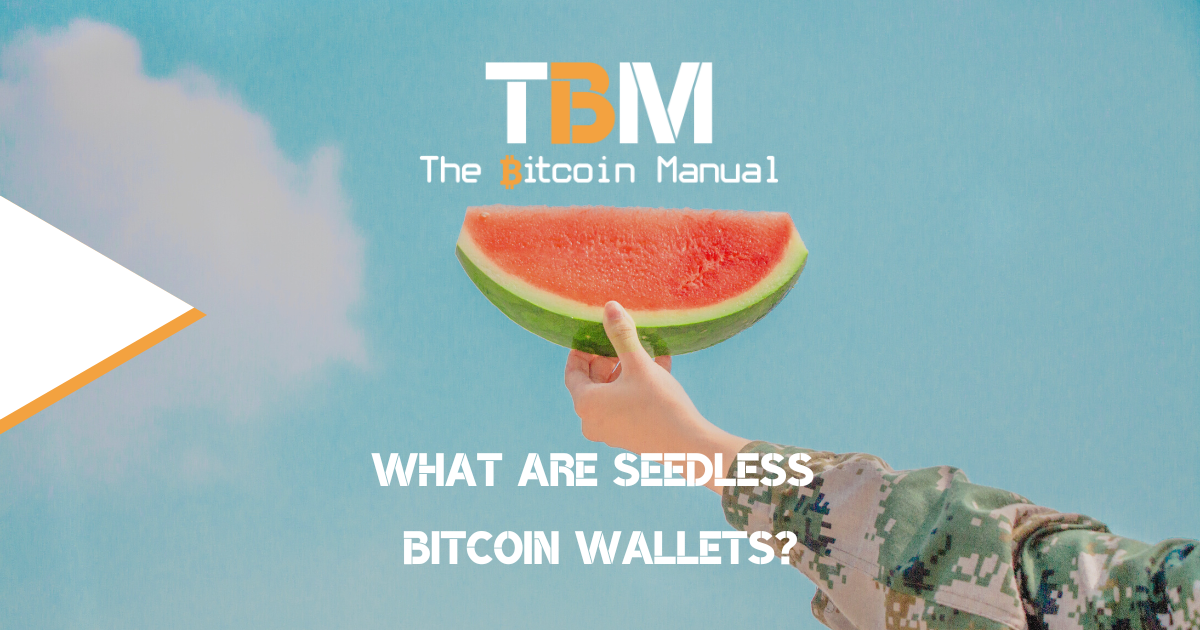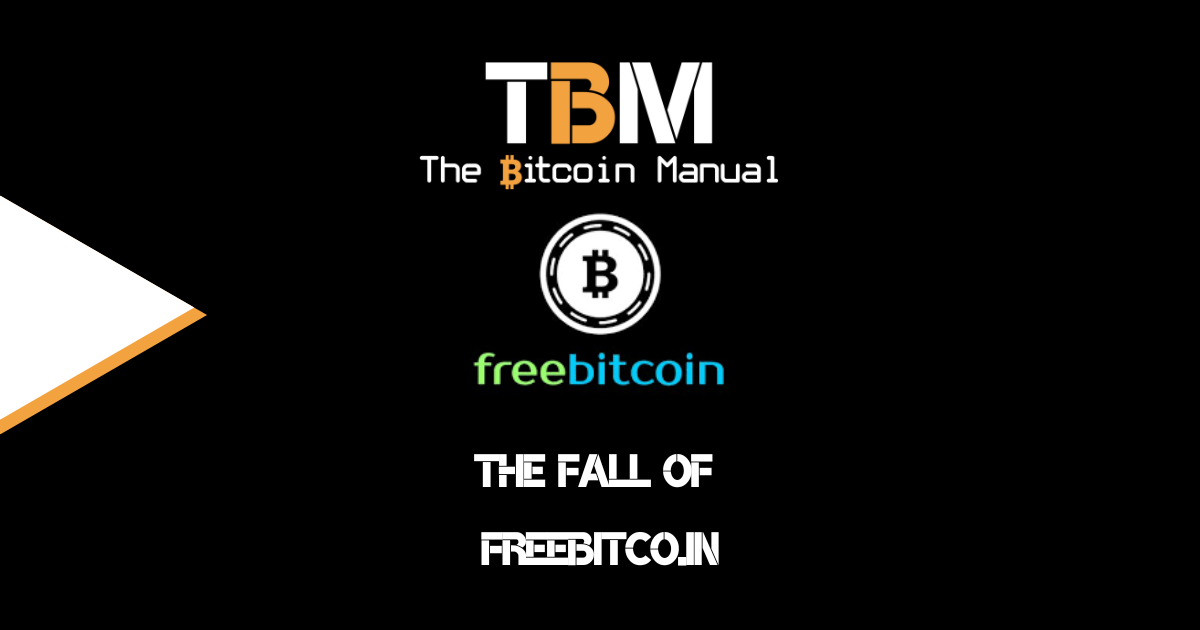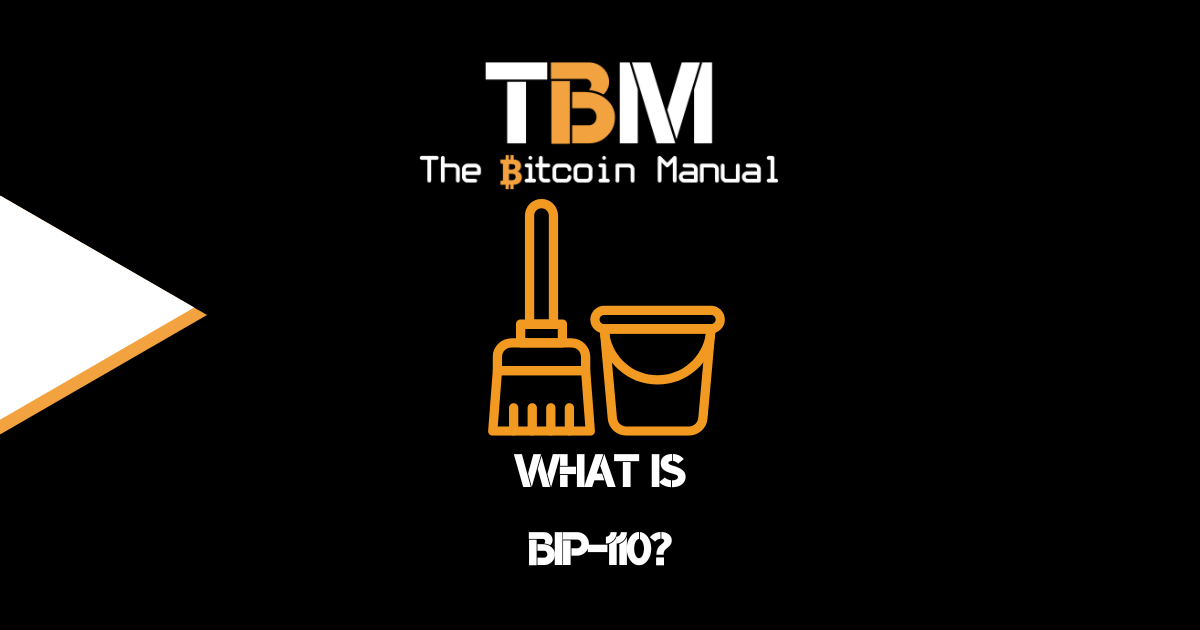Bitcoin wallets are your entry point into the network and are the primary interface for individuals to manage their funds and communicate with the network. A Bitcoin wallet is software that allows you to store, send, and receive funds in the form of UTXOs. Whenever you create a Bitcoin wallet, you are provided with a private key from which all your public keys are derived.
Your private key is tied to a method of recovery and ownership known as your mnemonic or backup phrase. A seed phrase controls all the private keys associated with a deterministic wallet. While BIP-39 proposal ensures major wallets have standardised seed phrases so that they are cross-compatible, and you can restore your wallet with the phrase using a range of software wallets or hardware wallets.
Conventional HD (Hierarchical Deterministic) wallets have become the standard for self-custody, but there are other wallet creation and management methods.
What is a seedless Bitcoin wallet?
A seedless Bitcoin wallet is a type of Bitcoin wallet that does not require a seed phrase or recovery phrase to recover your wallet. These wallets do not rely on a 12 or 24-word seed phrase that is typically used to recover lost or stolen Bitcoin wallets. Instead, seedless wallets rely on a different approach to security. Seedless wallets use multi-sig key distribution, multi-party computation (MPC) or smart contract technology to distribute key generation and signing processes among multiple parties or devices.
The main idea with seedless multi-sig is to make it so a combination of backup options in the form of devices, service providers, hardware wallets, trusted friends or family members, and other sources replaces the need to write down a backup passphrase and keep it secure.
Sharded keys
Another method of seedless wallets are MPC wallets, which remove the single point of failure by using a Threshold Signature Scheme (TSS). Under this paradigm, distributed shares of a private key are issues so that no single person or machine controls the private key entirely in a process called Distributed Key Generation (DKG). Depending on your setup, you can have a majority of signers validate to restore a wallet or jointly generate a key by combining the shares without exposing shares between the parties.
Private key rotation
Another MPC protocol takes the secret shares as input and outputs a new set. Previous secret shares can be deleted and replaced with new ones that can be used similarly without changing the corresponding public key and address.
Seedless wallets are infantilising users.
Seedless wallets offer several advantages over conventional HD wallets, such as ease of use and convenience. You don’t have to worry about keeping your seed phrase safe, which can be difficult and risky. You also don’t have to worry about losing your seed phrase, which can happen if you forget where you stored it or if the method used to store your phrase gets damaged or destroyed.
While you eliminate yourself as the single point of failure, you bring a host of parties into managing funds. In Bitcoin, there are no solutions, only trade-offs. There is a reason why the market has chosen seed phrases as the best way to self custody because it offers the highest amount of security for the individual.
Creating a seed phrase and keeping it safe is part of the experience of self-custody; without it, you don’t feel the real weight of personal responsibility. Sure, there is a case for seedless wallets in cases where literacy rates aren’t up to Western standards, but I still think there is a large cohort of people who should have no problem with self-custody.
Pros and cons of seedless wallets
Now that you know what a seedless wallet is and how it differs from a conventional HD wallet, let’s take a look at the pros and cons of using seedless wallets.
Pros of seedless wallets
- Convenience: Seedless wallets are more convenient to use than conventional HD wallets because you don’t have to worry about storing and protecting your seed phrase.
- Ease of use: Seedless wallets are easier to use than conventional HD wallets because they don’t require you to memorise or write down a seed phrase.
- Security: Seedless wallets can be more secure than conventional HD wallets if you live in a place where you cannot assure that you can secure your seed phrase.
- Privacy: Seedless wallets may offer better privacy than conventional HD wallets because they don’t require you to hold the phrase should you travel.
- No single point of failure. A whole private key is never concentrated on one device at any time.
Cons of seedless wallets
- Security: Seedless wallets can be less secure than conventional HD wallets if you choose a poor setup with compromised custodians or wallets.
- Recovery: Seedless wallets can be more difficult to recover since you must involve multiple parties and wallets.
- Compatibility: Seedless wallets may not be compatible with all Bitcoin wallets and services, which could limit your options for holding your Bitcoin.
- Trust: Seedless wallets require you to trust the service provider with your Bitcoin and personal information. This can be a risk if the provider is not reputable or experienced.
- Bespoke products. Many MPC libraries and solutions are not open-source.
Overall, seedless wallets offer a more convenient and user-friendly approach to managing your Bitcoin. However, they also come with some risks and limitations that you need to be aware of before choosing a seedless wallet. It’s important to choose a reputable and experienced service provider that has strong security measures in place and offers reliable customer support.
Who would benefit from seedless wallets?
Seedless wallets are helpful for certain business use cases, where either multi-sig is employed, allowing for safe extraction of the funds in case one device is lost or damaged. It can also play a role in enterprise-level development, where key management is done by other software or geographically dispersed people in the company’s infrastructure, allowing for key rotation upon device loss.
Training wheels for new users.
Seedless wallets are more convenient and require less maintenance than conventional HD wallets. With a seedless wallet, you don’t have to worry about storing and protecting a seed phrase, which can be a hassle and a risk for inexperienced users. This makes them great for onboarding new users with the lowest amount of friction possible.
Moving on from fully custodial Lightning
Seedless wallets can be more suitable for Lightning Network wallets, which are designed for fast and low-cost Bitcoin transactions. Since the Lightning Network is still a new and developing technology, with many users still using custodial wallets, a seedless wallet could be an upgrade on current offerings.
Seeds remain essential.
Having more options for different people and use cases is always a welcomed addition, but we shouldn’t try and throw the baby out with the bath water. In a world where we’ve become a slave to convenience, you would think that anything that is more convenient is necessarily better.
But if Bitcoin has taught us anything, then it’s the value of proof of work and why the harder path is the better one. Seed phrases remain a crucial aspect of Bitcoin wallet security and should be your first line of defence when securing your Bitcoin, be that your entire stack or a portion of it.
By using a seed phrase to secure your Bitcoin wallet, you can have peace of mind knowing that your funds are protected against a variety of risks, such as hardware failure, software bugs, and hacking attacks. Seed phrases are a simple yet powerful tool that every Bitcoin user should use to ensure the safety and security of their purchasing power.
Do your own research.
If you want to learn more about seedless wallets, use this article as a jumping-off point and don’t trust what we say as the final say. Take the time to research, check out their official resources below or review other articles and videos tackling the topic.
Do you take self-custody of your stack?
If you’re new to Bitcoin and have not ventured down the self-custody rabbit hole, what is stopping you? If you’re already self-sovereign, how has the experience been since you took hold of your funds? Let us know in the comments down below. We’re always keen to hear from bitcoiners from around the world.




